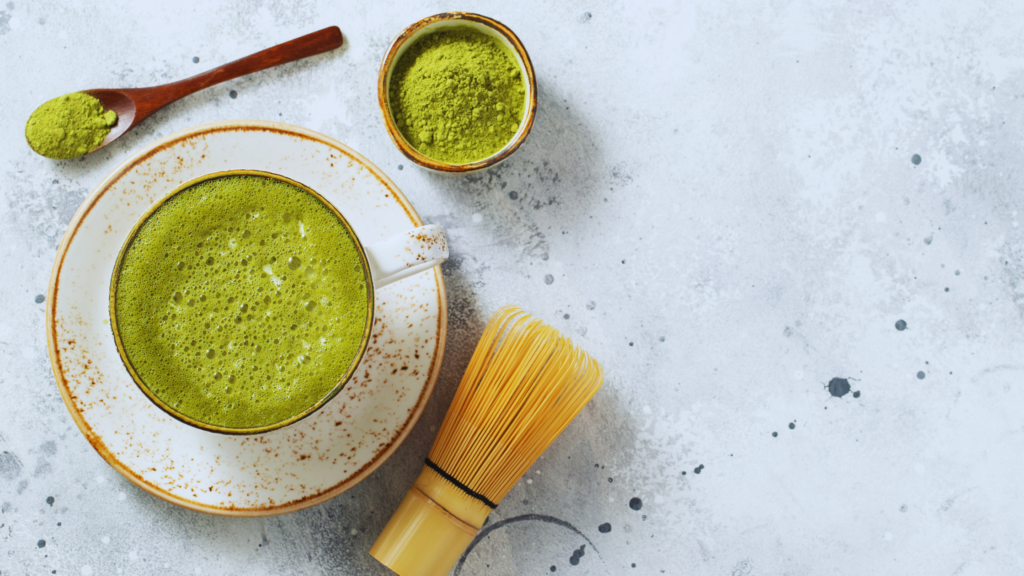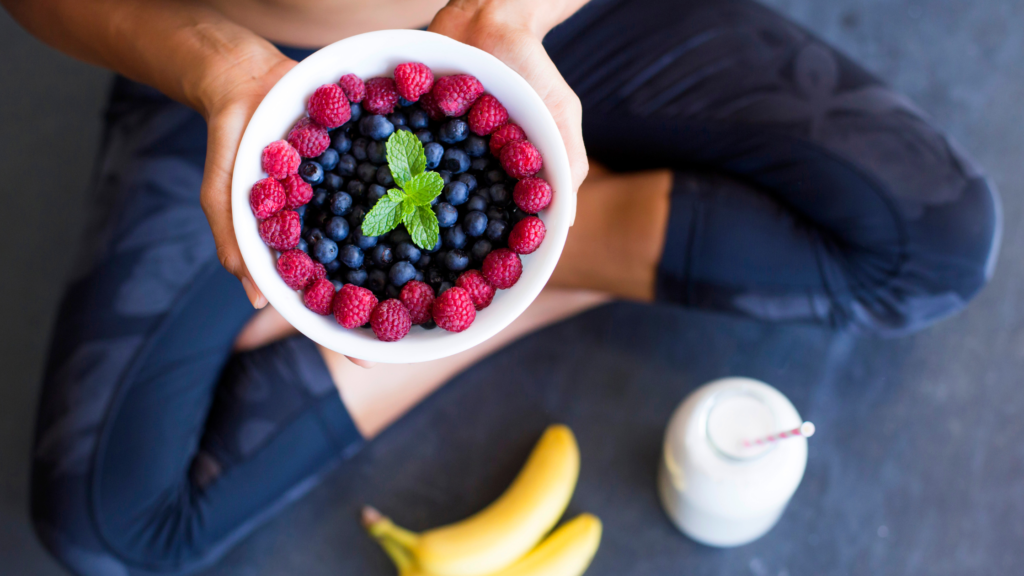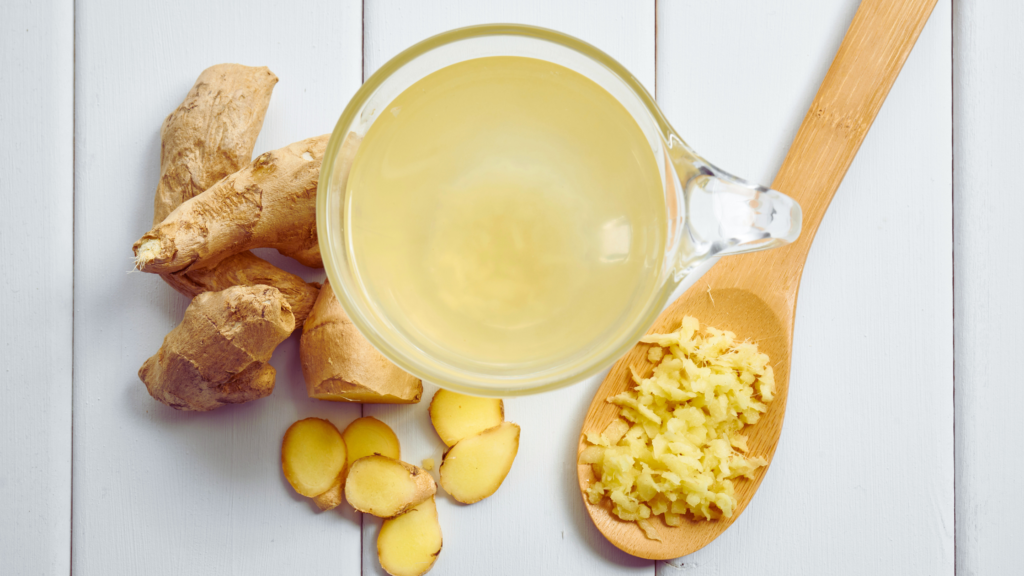Inflammation is a natural immune response in the body, but when it becomes chronic, it can lead to a host of health issues and autoimmune disorders. Fortunately, incorporating anti-inflammatory foods into your diet can help combat inflammation and promote overall wellness. Let’s explore our pick of the top 7 anti-inflammatory foods backed by both holistic wisdom and modern medicine.
Who will benefit from Anti-Inflammatory Foods?
In today’s fast-paced world, filled with stress, pollution (from the air and water), and processed foods, we’re all facing heightened levels of inflammation in our bodies. Whether it’s the daily grind of work, exposure to environmental toxins, or the convenience of fast food, our modern lifestyles are fueling inflammation like never before. As a result, the need to combat inflammation has become a universal concern, affecting each and every one of us. By incorporating anti-inflammatory foods into our diets, we can all take proactive steps to support our bodies’ natural defenses and promote long-term health and vitality. The power of anti-inflammatory foods is a vital tool in our collective journey toward optimal wellness.

Our Top 10 Anti-Inflammatory Foods:
1. Turmeric:
- Turmeric contains curcumin, a powerful anti-inflammatory compound that has been shown to reduce inflammation and alleviate symptoms of arthritis and other inflammatory conditions.
- Can we taken in capsule form or added to your favorite meals.
Amazon Best Selling Recommendation:
2. Ginger:
- Gingerol and shogaols, the active compounds in ginger, possesses potent anti-inflammatory properties that can help reduce muscle soreness, ease joint pain, and combat inflammation throughout the body.
- You can add crushed ginger root to your meals, eat it raw or make ginger water/tea first thing in the morning.
Amazon Best Selling Recommendation:
3. Berries:
- Berries like blueberries, strawberries, and raspberries are rich in antioxidants and flavonoids, which have been shown to reduce inflammation and protect against chronic diseases such as heart disease and cancer.
- Consider purchasing WildBlueberries from the freezer section for even more of a health boost!
Amazon Best Selling Recommendation:
4. Fatty Fish:
- Fatty fish such as salmon, mackerel, and sardines are rich in omega-3 fatty acids, which have potent anti-inflammatory effects and can help reduce inflammation in the body.
- Can be bought and consumed in capsule form too
Amazon Best Selling Recommendation:
5. Extra Virgin Olive Oil:
- Extra virgin olive oil is rich in monounsaturated fats and contains oleocanthal, a compound with anti-inflammatory properties that can help reduce inflammation and protect against heart disease and other inflammatory conditions.
- Great on salads, or drizzled on vegetables or even taken with some lemon and cayenne pepper for a zesty wellness shot.
- Always purchase your EVOO in a dark glass bottle.
Relevant article on choosing the right oils: Healthy Cooking Oils
6. Garlic:
- Garlic contains sulfur compounds that have been shown to reduce inflammation and boost the immune system, making it a valuable addition to an anti-inflammatory diet.
- Growing your own garlic is one of the easiest and most rewarding gardening projects. Learn more here: Growing Garlic – Everything You Need to Know, Zone by Zone
- Incorporate it as much as possible into your cooking or consider taking it in capsule form.
Amazon Best Selling Recommendation:
7. Green Tea:
- Green tea is loaded with antioxidants called catechins, which have potent anti-inflammatory effects and can help reduce inflammation and lower the risk of chronic diseases.
- Drinking green tea or matcha daily is a game changer, not to mention how great it is for your skin.
Amazon Best Selling Recommendation:

What To Avoid:
While incorporating these powerful foods into your diet , it’s important to make sure to also focus on eliminating as many inflammatory sources as possible. Here is a short list of the inflammatory foods you may want to avoid:
1. Processed Foods:
- Processed foods are often high in refined sugars, unhealthy fats, and artificial additives, all of which can trigger inflammation in the body. These include any packaged snacks, sugary cereals, and fast food. Pretty much anything with an exceptionally long expiration date.
2. Sugary Beverages:
- Beverages like soda, fruit juices with added sugars, and energy drinks are loaded with artificial sugars that can spike blood sugar levels and contribute to inflammation.
3. Refined Carbohydrates:
- Foods made with refined grains, such as white bread, white rice, and pasta, lack fiber and essential nutrients, leading to rapid spikes in blood sugar levels and increased inflammation.
4. Trans Fats:
- Trans fats are found in fried foods, margarine, and many processed snacks and baked goods. They not only raise bad cholesterol levels but also promote inflammation in the body.
5. Dairy Products:
- Some people may be sensitive to dairy products, particularly those containing lactose or casein. These can trigger inflammation and digestive issues in susceptible individuals.
6. Alcohol:
- Excessive alcohol consumption can disrupt gut health, increase inflammation, and weaken the immune system. It can also lead to oxidative stress and damage to cells and tissues.

Incorporating these 7 anti-inflammatory foods into your diet and eliminating inflammation causing foods, can help reduce inflammation, boost immunity, and promote overall health and vitality. Whether you’re enjoying a turmeric-laced curry, snacking on a handful of berries, or sipping on a cup of green tea, each bite and sip brings you one step closer to a healthier you.
So why wait? Start transforming your diet and health today with the power of anti-inflammatory foods. x
Daily Wellness Health Tip:
To supercharge your anti-inflammatory efforts, start your day with a refreshing ginger and lemon shot. Simply juice one-inch piece of ginger and half a lemon, mix with warm water, and drink first thing in the morning. This powerful elixir will kickstart your metabolism, alkalize your body, and provide a potent dose of anti-inflammatory compounds to start your day on the right foot. A kitchen hack for storing this elixir for the long term is to make a big batch and freeze it in an ice cube tray. This way every morning you can thaw out a cube. Alternatively, most stores now offer them in prepackaged containers for a grab and go convenience.

Disclaimer: As an Amazon Associate, we earn from qualifying purchases. This helps support the blog at no extra cost to you!
Sources:
- Harvard Health Publishing. “Foods that fight inflammation.” Harvard Health.
- Arthritis Foundation. “The ultimate arthritis diet.”
- Medical News Today. “Foods that reduce inflammation.”
- National Center for Complementary and Integrative Health. “Turmeric.”
- Mayo Clinic. “Nutrition and healthy eating.”
- WebMD. “Inflammation and your diet: What you need to know.”



